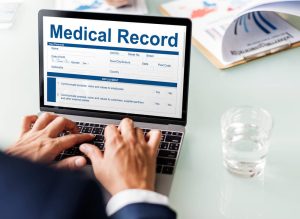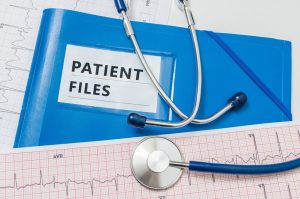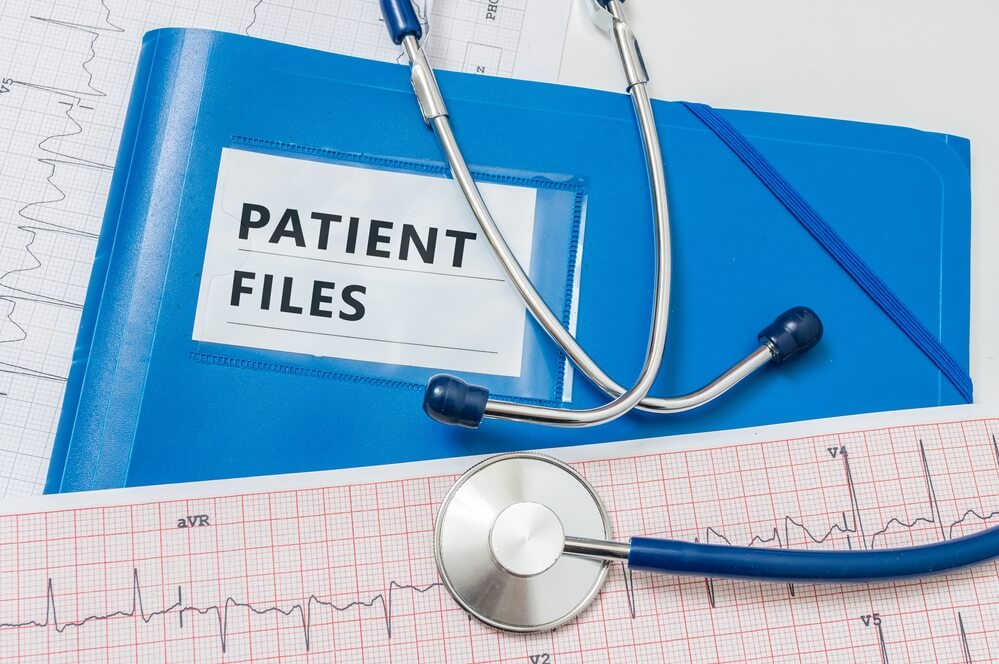Obtaining and Maximizing the Medical Information Contained in Your Medical Records after Experiencing Injuries in an Accident in New Jersey

Every time you visit a doctor, undergo surgery, or fill a prescription, a medical record is created. These records provide healthcare providers with information about your medical history and conditions so they can better understand your overall medical needs and any contraindications for future care. Your medical records also help healthcare providers to understand the greater context of symptoms you may be experiencing and provide a more accurate and thorough diagnosis.
Medical records are not just used by healthcare providers but also insurance companies and lawyers in the event of a personal injury accident. Depending on what your medical records reveal and, to some extent, how they are interpreted by expert medical witnesses, the records may support a legal claim for damages if there is an individual who negligently caused your injuries.
In What Ways Are Medical Records Used in a Personal Injury Case?
Successfully bringing a claim for negligence in a personal injury case requires an injured person to produce enough evidence to prove that the defendant was more likely than not responsible for causing their injuries. However, winning a personal injury lawsuit is not as easy as submitting your medical records to the court. To win your case, you need to know how to present the information in a compelling well to the insurance company’s lawyers and/or the court. This often involves deposing your care providers under oath and hiring an expert to conduct an independent medical evaluation (IME).
Typically, an IME involves examining the patient, reviewing all of their medical records, and issuing a report detailing the expert’s opinion about the extent of the victim’s injuries, their limitations, percentage of temporary and/or permanent disability, future care needs, and the likely cause of the injuries.
Details and Data in a Person’s Medical History
Medical records can be quite extensive and if you’ve ever received extensive care for an injury or condition, your medical records can quickly fill up even extra large file folders. These records contain a plethora of information, including identifying information like your name, date of birth, social security number, height, weight, race, and sex.
Each in-person and virtual visit to your healthcare provider is documented in your records, including any notes or actions taken by your provider or their staff. Your medical records will often list the symptoms you were complaining about, any information you provided to your medical provider about how an injury occurred, the provider’s notes and observations during any examinations, diagnosis, progress, and possibly the provider’s opinion as to the cause of a condition or injury. Dates and details of medical care provided, like wound treatment, surgeries, and any other procedures, are also included in medical records, as well as the results of any diagnostic tests or imaging like blood work, lab work, CAT scans, MRIs, and more.
How Easy Is It to Gain Access to Your Medical Information?
The privacy of your medical records is protected by New Jersey and federal law, specifically, the Health Insurance Portability and Accountability Act of 1996 (HIPPA). As a patient, you have a right to request copies of your medical records. To give someone else, like your lawyer or even your spouse, permission to request a copy of your medical records for a hospital or provider, you must execute a HIPPA or medical records release authorization, giving the hospital or provider permission to release your medical records to that person.
Privacy Protections vs. Disclosure of Medical Information in Injury Claims
While, normally, your medical records are private and cannot be disclosed to others without your permission, when you file a personal injury claim, you put your health and physical condition at issue, and you must share this information with the other side. The defendant can also subpoena medical records that are relevant to your case. While you and your lawyer will be focused on using your medical records to prove the severity and cause of your injuries, insurance companies will be looking for evidence of any and all pre-existing injuries or conditions, as well as any evidence that your symptoms or injuries were the result of some other cause.
Having pre-existing injuries or conditions does not mean that you cannot recover compensation for injuries resulting from a later accident, but insurance companies and their lawyers will try to attribute your current injuries and medical problems to those pre-existing conditions, rather than the accident, whenever possible. They may also point to your pre-existing conditions to demonstrate that, at best, the accident was responsible for exacerbating a pre-existing injury, resulting in less liability for the defendant than if they were entirely responsible for your condition.
How Our Personal Injury Lawyers Strengthen Your Case with Medical Records

Before you even begin negotiations or file a claim, our personal injury lawyers at Cohen & Riechelson will examine your medical records to assess the strength of your potential case and estimate how much compensation, if any, you may be entitled to. If your lawyer determines that your case is worth pursuing, their first step might be to send a demand letter to the defendant with supporting evidence for your claim. Here, our job is to provide an analysis that pulls together the information in your medical records into a concise and persuasive argument.
While every case is different, if we determine that your case needs to be prepared for litigation, they may schedule depositions with your treating physicians. We may also hire an independent medical examiner to generate an opinion on your case and depose them as an expert witness in your case. Keep in mind that we may suggest this even if you intend to settle your claim before trial, as it may strengthen your position in negotiations. These are not steps that a non-lawyer or even a lawyer who does not focus on personal injury law is equipped to take or accomplish effectively. Hence, there is a need for knowledgeable, skilled legal representation.
Our Injury Lawyers in New Jersey can Assist with Leveraging Your Medical Records
Medical records are a linchpin in meeting your burden as a plaintiff in a personal injury case. While medical records provide critical information, they are not organized into a legal argument to prove each element of a negligence claim without a skilled personal injury lawyer weaving the facts, narrative, and legal standards together to build a compelling case. Our attorneys at Cohen & Riechelson have been doing this for over 50 years. Contact us for a free consultation at (609) 528-2596 and learn more about how we can assist you, as we have done for numerous injured victims and their families throughout Mercer, Burlington, and Middlesex County, including Ewing, Trenton, Burlington, Titusville, Hopewell, and Hamilton.

